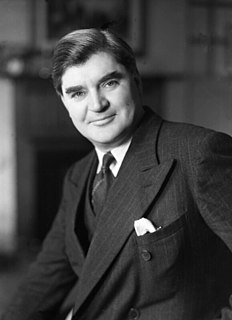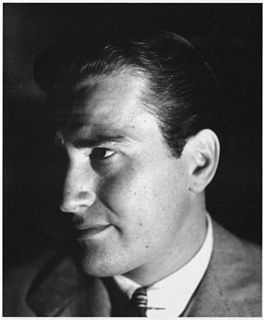A Quote by John Wooden
Losing is only temporary and not encompassing. You must simply study it, learn from it, and try hard not to lose the same way again. Then you must have the self-control to forget about it.
Related Quotes
You try and imagine what it must have been like to first see something moving on a screen. It must have blown your mind, because up to then life went by and there was no way to capture it. You could only get one instant and you didn't get the movement. So it's like having a bit of control over time really, because it's happening in real time or what seems to be real time, and then you can play it backwards and you can watch things again and again.
I know that the right kind of leader for the Labour Party is a desiccated calculating machine who must not in any way permit himself to be swayed by indignation. If he sees suffering, privation or injustice he must not allow it to move him, for that would be evidence of the lack of proper education or of absence of self-control. He must speak in calm and objective accents and talk about a dying child in the same way as he would about the pieces inside an internal combustion engine.
Holding onto and manipulating physical objects is one of the things we learn earliest and do the most. It should not be surprising that object control is the basis of one of the five most fundamental metaphors for our inner life. To control objects, we must learn to control our bodies. We learn both forms of control together. Self-control and object control are inseparable experiences from earliest childhood. It is no surprise that we should have as a metaphor-a primary metaphor-Self Control is Object Control.
However, to modify a habit, you must decide to change it. You must consiously accept the hard work of identifying the cues and rewards that drive the habits' routines, and find alternatives. You must know you have control and be self-conscious enough to use it -- and every chapter in this book is devoted to illustrating a different aspect of why that control is real.
To study the Way is to study the Self. To study the Self is to forget the self. To forget the self is to be enlightened by all things of the universe. To be enlightened by all things of the universe is to cast off the body and mind of the self as well as those of others. Even the traces of enlightenment are wiped out, and life with traceless enlightenment goes on forever and ever
The first step to walking in righteousness is simply to try. We must try to believe. Try to learn of God: read the scriptures; study the words of His latter-day prophets; choose to listen to the Father, and do the things He asks of us. Try and keep on trying until that which seems difficult becomes possible-and that which seems only possible becomes habit and a real part of you.
When we must deal with problems, we instinctively resist trying the way that leads through obscurity and darkness. We wish to hear only of unequivocal results, and completely forget that these results can only be brought about when we have ventured into and emerged again from the darkness. But to penetrate the darkness we must summon all the powers of enlightenment that consciousness can offer.
To study the buddha way is to study the self. To study the self is to forget the self. To forget the self is to be actualized by myriad things. When actualized by myriad things, your body and mind as well as the bodies and minds of others drop away. No trace of realization remains, and this no trace continues endlessly.
One is astonished in the study of history at the recurrence of the idea that evil must be forgotten, distorted, skimmed over. We must not remember that Daniel Webster got drunk but only that he was a splendid constitutional lawyer. We must forget that George Washington was a slave owner . . . and simply remember the things we regard as creditable and inspiring. The difficulty, of course, with this philosophy is that history loses its value as an incentive and example; it paints perfect man and noble nations, but it does not tell the truth.
If you try anything, if you try to lose weight, or to improve yourself, or to love, or to make the world a better place, you have already achieved something wonderful, before you even begin. Forget failure. If things don't work out the way you want, hold your head up high and be proud. And try again. And again. And again!
Essentially, the popular musician in America must learn that his basic job is to entertain people, to make them forget their sorrows for a moment or two; in the same sense that any popular art form must aim at the same distraction value. Any such job as that is basically a young man's business. It takes a young man's energy to go traveling around the country, night after night in a different place, prancing and cavorting around in front of mobs of people all out to try to forget their problems for an evening. And for a young man it can be a good enough way of life, if he happens to like it.





































